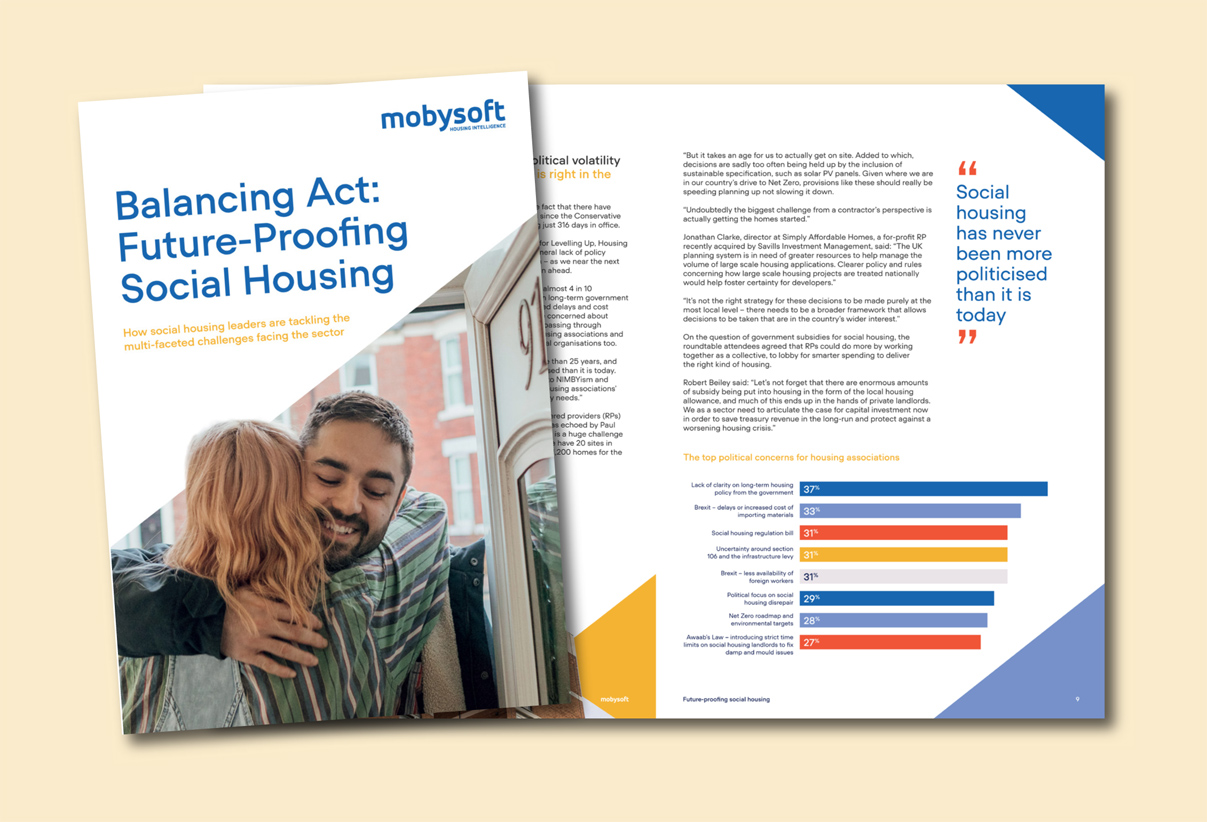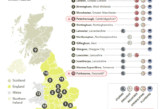
More social housing tenants are in rent arrears now than during the Covid-19 pandemic as they struggle with the cost of living, according to a new report.
In a poll of 100 c-suite executives at UK housing associations, carried out by data intelligence firm Mobysoft, two thirds (66%) said they are currently experiencing more tenants struggling with debt than during the Covid-19 pandemic.
Social housing leaders cited a range of challenges facing tenants including rising household bills (34%), fluctuating income levels (32%), trouble finding work (29%) and food and fuel inflation (25%).
The figures, published in Mobysoft’s Future-proofing Social Housing report, showed that many are having to take significant steps to support tenants, with a third (33%) offering more rent and service charge holidays, a similar proportion (32%) planning to introduce hardship funds for tenants and 29% partnering with food banks to help residents access food more affordably.
Housing association leaders also said they are providing financial guidance to customers (43%), digitalising services to make managing payments easier (42%) and helping to upskill residents and connect them to job opportunities (36%).
Julie Lorraine, Strategic Director at Mobysoft, said: “Social housing is between a rock and a hard place, with conflicting obligations creating a dichotomy in the sector. Housing associations are under mounting pressure to invest in improving existing homes, including sustainability upgrades, while also continuing to deliver more new homes. At the same time, the cost-of-living crisis is putting their main revenue stream, rent collection, under pressure as increasing numbers of financially vulnerable social housing customers start falling behind on their payments.
“These combined pressures are a real challenge for the sector — when you consider the payment holidays available to renters during the pandemic, that more social housing residents are in arrears now is a stark indicator of the impact the cost of living increase is having. Without a major rethink at a government policy level, we risk the affordable housing sector becoming unaffordable for both residents and providers.”
Despite being optimistic about delivering more homes — 67% of HA leaders said that the number of new homes they build this year will exceed pre-pandemic levels — many are exploring drastic measures to keep costs down, with a third (34%) planning to reduce headcount over the next 12 months. That’s slightly more than are planning to secure more capital market funding to fuel growth (30%).
Nearly one in three (29%) are also prioritising investment in productivity enhancing technology.
Commenting on the research, Robert Beiley, Partner and Affordable Housing Specialist at law firm Trowers & Hamlins, said: “The tension between investment in existing stock, new-build and supporting residents is at the heart of every conversation we are having with the social housing sector at the moment. There is an enormous amount of subsidy being put into housing, but it is largely delivered through the local housing allowance, much off which ends up in the hands of private landlords.
“We as a sector need to articulate the case for capital investment now in order to save treasury revenue in the long run and protect against a worsening housing crisis.”
Mobysoft is a technology company providing data analytics solutions, including rent and repairs monitoring, to more than 170 housing organisations in the UK.









